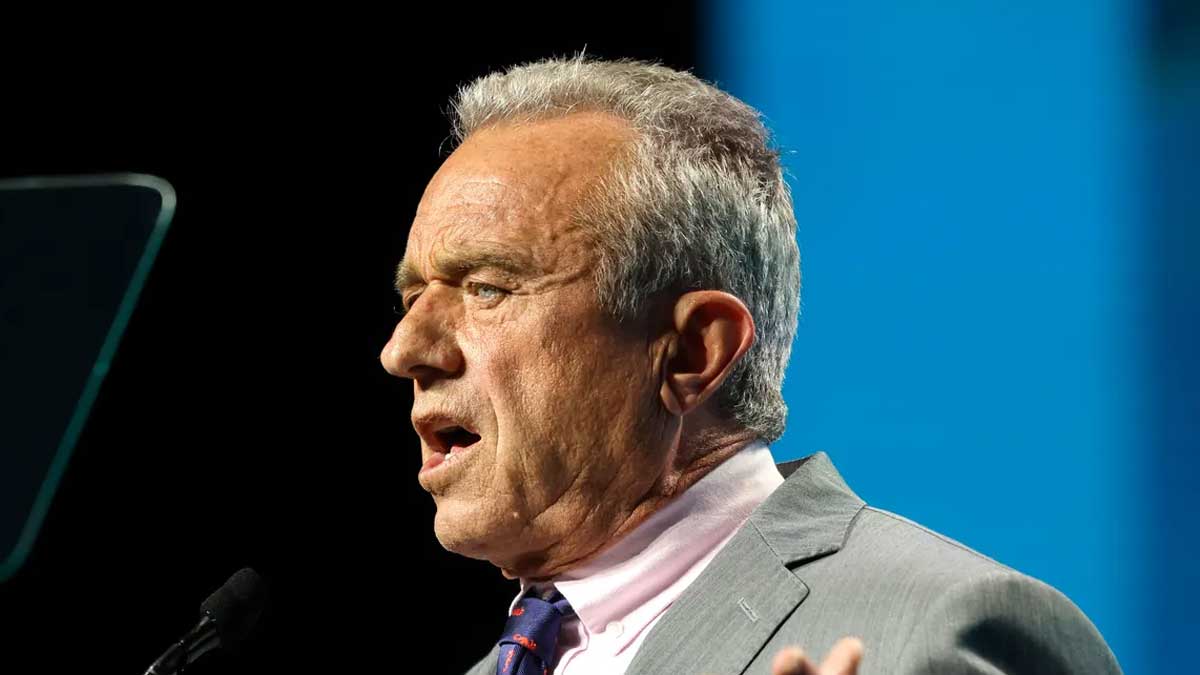- Home
- Billionaires
- Investing Newsletters
- 193CC 1000
- Article Layout 2
- Article Layout 3
- Article Layout 4
- Article Layout 5
- Article Layout 6
- Article Layout 7
- Article Layout 8
- Article Layout 9
- Article Layout 10
- Article Layout 11
- Article Layout 12
- Article Layout 13
- Article Layout 14
- Article Sidebar
- Post Format
- pages
- Archive Layouts
- Post Gallery
- Post Video Background
- Post Review
- Sponsored Post
- Leadership
- Business
- Money
- Small Business
- Innovation
- Shop
Recent Posts
RFK Jr. to Get Secret Service Protection After Trump Attack

President Joe Biden has recently mandated that the Secret Service extend protection to Robert F. Kennedy Jr., an independent candidate for the presidency, following an attempted assassination of former President Donald Trump. This decision was made just days after Trump narrowly escaped an assassination attempt during a rally in Butler, Pennsylvania. The incident, in which a bullet grazed Trump’s right ear, has prompted a heightened call from various political figures, including Trump himself, for increased security for Kennedy. Secretary of Homeland Security Alejandro Mayorkas confirmed that Biden instructed the Department of Homeland Security (DHS) to implement this protective measure, citing the urgent need to address the elevated risk in light of recent violent events.
On Monday morning, Trump took to Truth Social to stress the critical need for Kennedy’s protection, attributing it to the current volatile global environment and the recent assassination attempt on himself. In his post, Trump emphasized that the situation demands immediate action to safeguard Kennedy from potential threats. Shortly after the shooting incident, Colorado Governor Jared Polis also called for federal intervention, suggesting on social media that Kennedy should be granted Secret Service protection without delay. This endorsement came as part of a broader response to the heightened security concerns following the attack on Trump.
In addition to these calls from high-profile figures, Representatives Ritchie Torres and Mike Lawler have announced their intention to introduce a bill aimed at bolstering Secret Service protection for major presidential candidates, including Biden, Trump, and Kennedy. This proposed legislation seeks to address the growing concerns about the safety of candidates and ensure that those running for the highest office in the nation receive adequate protection.
Kennedy’s own family members have also weighed in on the matter. Former Representative Joseph Kennedy III, who has been vocal in his opposition to his uncle’s presidential bid, acknowledged the need for enhanced security, stating in an interview on CNN that any candidate in today’s climate would require such protection. This statement highlights the broad consensus that, given the current security landscape, all candidates need robust protection measures.
The DHS has acknowledged receipt of Kennedy’s request for Secret Service protection and is currently reviewing it. According to Politico, this review process involves evaluating the current threat levels and determining the appropriate level of security necessary. This step follows Kennedy’s previous appeals for protection, which had been denied based on recommendations from a congressional advisory committee.
The allocation of Secret Service protection to presidential candidates is determined by the Secretary of Homeland Security, who consults with an advisory committee comprising the Speaker of the House, the House Minority Leader, the Senate Majority Leader, the Senate Minority Leader, and one additional member. The DHS secretary has significant discretion in making these decisions but typically considers polling data, with major party candidates needing to poll at least 15% for 30 consecutive days and independent candidates requiring a 20% polling threshold. The department also assesses the candidate’s threat level, which includes explicit threats or behavior suggesting potential harm. Protection is generally granted within one year of the general election, except in extraordinary cases based on the candidate’s risk profile.
In historical context, Joe Biden began receiving Secret Service protection in March 2020, despite having prior protection as vice president, which had lapsed six months after leaving office. During the 2016 election cycle, Donald Trump and Ben Carson, leading Republican candidates, were provided protection, and Bernie Sanders received his in February 2016. Hillary Clinton had ongoing protection due to her status as a former first lady. For the 2008 election, Barack Obama received protection unusually early in May 2007, a decision described as exceptional by The New York Times. Some candidates, such as John McCain in 2008, have declined protection, citing concerns about maintaining close voter contact.
Kennedy’s current polling average, as reported by Real Clear Politics, stands at 9.4%, which falls short of the 20% polling threshold recommended by the DHS for independent candidates. This polling data has been a factor in the previous denial of Kennedy’s protection requests, as the advisory committee had recommended against granting security based on his polling numbers and perceived risk.
The tradition of providing Secret Service protection to presidential and vice-presidential candidates began after the assassination of Robert F. Kennedy in 1968, who was the father of Robert F. Kennedy Jr. Kennedy made a public call for Secret Service protection on June 5, marking the 56th anniversary of his father’s assassination, underscoring the long-standing concerns about security within the Kennedy family.
Trump’s recent post on Truth Social reiterated the importance of this protection, referencing both the assassination of Kennedy’s father and the 1963 assassination of Kennedy Jr.’s uncle, John F. Kennedy. The shooting incident, which saw a 20-year-old suspect, Thomas Matthew Crooks, firing from a nearby building and subsequently being killed by Secret Service agents, has intensified the debate over the necessity of comprehensive security measures for all presidential candidates.
Recent Posts
Categories
- 193cc Digital Assets2
- 5G1
- Aerospace & Defense46
- AI37
- Arts3
- Banking & Insurance11
- Big Data3
- Billionaires449
- Boats & Planes1
- Business328
- Careers13
- Cars & Bikes76
- CEO Network1
- CFO Network17
- CHRO Network1
- CIO Network1
- Cloud10
- CMO Network18
- Commercial Real Estate7
- Consultant1
- Consumer Tech180
- CxO1
- Cybersecurity68
- Dining1
- Diversity, Equity & Inclusion4
- Education7
- Energy8
- Enterprise Tech29
- Events11
- Fintech1
- Food & Drink2
- Franchises1
- Freelance1
- Future Of Work2
- Games141
- GIG1
- Healthcare78
- Hollywood & Entertainment186
- Houses1
- Innovation42
- Investing2
- Investing Newsletters4
- Leadership65
- Lifestyle11
- Manufacturing1
- Markets20
- Media193
- Mobile phone1
- Money13
- Personal Finance2
- Policy567
- Real Estate1
- Research6
- Retail1
- Retirement1
- Small Business1
- SportsMoney33
- Style & Beauty1
- Success Income1
- Taxes2
- Travel10
- Uncategorized8
- Vices1
- Watches & Jewelry2
- world's billionaires418
Related Articles
Trump Moves $4B Stake in Truth Social Parent, Stock Drops 6%
Donald Trump recently transferred his 57% stake in Trump Media & Technology...
By 193cc Agency CouncilDecember 20, 2024House Rejects Trump-Backed Funding Bill, Shutdown Looms
The U.S. House of Representatives rejected a new government funding bill on...
By 193cc Agency CouncilDecember 20, 2024Trump Named Time’s Person of the Year for Second Time
On Thursday, Time magazine honored Donald Trump as its “Person of the...
By 193cc Agency CouncilDecember 12, 2024Meta Donates $1 Million to Trump’s Inaugural Fund
Meta, the parent company of Facebook and Instagram, has confirmed a $1...
By 193cc Agency CouncilDecember 12, 2024















Leave a comment